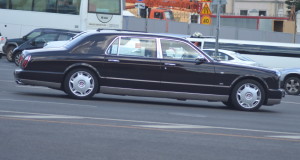It’s the time of year when we’ve left Christmas behind and we start to make plans towards our family summer holiday. Getting away for a well-deserved break is often the real highlight of the year for many families, but not so the return. Coming back home can not only signals a return back to normality but the jetlag from travelling can really bring us back to earth with a bump.
This article, something which we produced in association with www.sleepypeople.com, looks at the causes of jet lag and at some ways in which we can combat it.
East to West is Best, West to East is a Beast!
This isn’t a hard and fast rule but generally, people travelling from East to West will not suffer any particular problems with jet lag. This is because when we land in our destination we will encounter an extended day. Generally speaking people can cope with a day that is a few hours longer than normal. Any tiredness experienced from flying East to West is more likely to be general fatigue caused from lengthy airport queues and sitting in fairly cramped conditions on the plane.
The problems occur when we travel from West to East. When we land in our destination our day will be shorter and the longer the distance you fly the worse the effect will be. If you have fairly rigid patterns to your day such as the times you eat and sleep, it’s likely you’re going to find the experience extremely unpleasant.
Mix it up a Bit
In the weeks running up to your travel, try and be a little more varied in the times we set the alarm in the morning, eat our meals and turn into bed at night. By doing this we are getting our body out of its comfort zone and into a varied routine. If you’re travelling West on your holiday, continuing to keep your pattern of waking, sleeping and eating varied on your holiday stay will further help you on your return East.
Take a Leaf out of Lewis Hamilton’s Book
The world of formula 1 is renowned for its punishing travel schedule as much as for its high octane racing. The logistics of getting the race cars and equipment to the far continents outside of central Europe is carefully managed and that includes a lot of thought about the driver and team wellbeing. Formula 1 is also famous for its huge budgets and so teams often charter entire planes equipped with full sleeping quarters for the drivers, engineers and pit crew. The drivers have a medical crew who manage their sleep, getting them to sleep at the right time so that they wake up refreshed adjusted in the new time zone and ready to race.
Having your own sleeping quarters on the plane is perhaps a bit unrealistic but there are some principles you can borrow from the way top athletes adjust. Getting yourself physically and psychologically adjusted to the new time zone will help immensely.
You can do this by:
- setting your watch to the new time zone before travelling
- try and sleep on any flight of 5 hours or more
- let the coffee pot pass you by – especially if you’re landing at night
- get as much daylight as possible on the first day back
Don’t Try This at Home
Whatever you do, don’t head to bed the moment you return back home – unless of course it is actually a suitable bed time in that time zone. As tempting as it may seem, crashing out the instant you arrive could prolong the agony of Jet Lag. Instead try and hold out until the next suitable bed time for that time zone.
We hope the above tips help you return home without the fatigue of jet lag and with fond memories of your holiday.
 Living There
Living There



